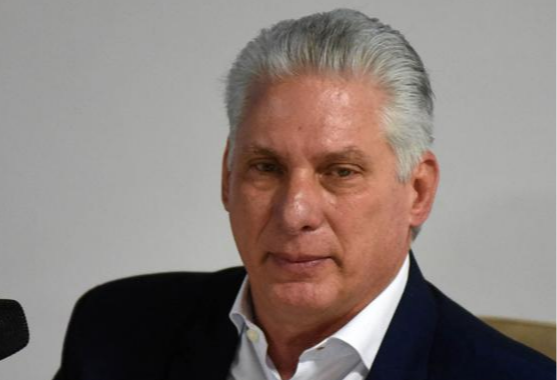
Cuban President Miguel Diaz-Canel today acknowledged the country's challenges amid an acute economic crisis and adverse international context
Havana, Dec 11 (RHC) Cuban President Miguel Díaz-Canel today acknowledged the country's multiple challenges amid an acute economic crisis and an adverse international context, which have repercussions in the national economic and social sphere.
We are living in times of multidimensional crisis at a global level, which is much more accentuated in Cuba’s case due to the tightening of the U.S. blockade, said the president, and added that in this scenario the accumulated domestic problems are more accentuated.
In a dialogue with the deputies of the Economic Affairs Committee of the National Assembly of People's Power, the head of state detailed the contradictions faced by the Caribbean nation in its efforts to sustain its social model, without resorting to neoliberal measures.
He gave as an example that amid the difficulties with the energy supply, the island resorted to the leasing of floating generation plants, which are paid in foreign currency, but the country does not charge the service to the population in that currency and neither did it raise the prices of this service.
This is a completely subsidized sector, he explained, and this year it represented the largest part of the foreign currency expenditure, both for the purchase of fuels and for acquiring parts and supplies necessary for repairs and maintenance, which are essential to overcome the difficulties.
The President added that this money must be generated in other productive areas, for which financial resources are also required.
Our challenge is to guarantee the basic food basket and the resources for education and health..., and the simplest thing would be to resort to price increases as most countries do, however, our system of social justice requires us to look for other alternatives, he said.
Díaz-Canel alluded to persistent problems such as inflation, and excess liquidity concentrated in a part of the population, which can buy products even if they are expensive; also, the existence of people who operate outside the law and earn more money than those who contribute to society. In this regard, he said that the fight against crimes and illegalities is for everyone and in all sectors because Cuban society cannot afford to support those who could be working but instead live by exploiting those who contribute. "It is something we must solve amid the crisis," he emphasized.
Solving the great imbalance between supply and demand, the situation of state companies with losses or those that misuse the powers granted to them, and taking better care of people in vulnerable situations, with a focus on true social transformation and not on assistance, are also issues to which the Government is paying attention, he said.
We are also going to overcome the difficult moment we are going through, he stressed, there are strategies, and measures, which do not mean an immediate result, but they do bear fruit.
We have to resort to creative resistance, strengthen local development and local productive systems, fundamentally those that do not depend on foreign currency, as well as develop the circular economy and stimulate innovation, he added.
"With creative resistance, we will win, it is a path that takes effort, sacrifice, and will, but it is a path, and we have to overcome the blockade," he concluded.

